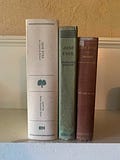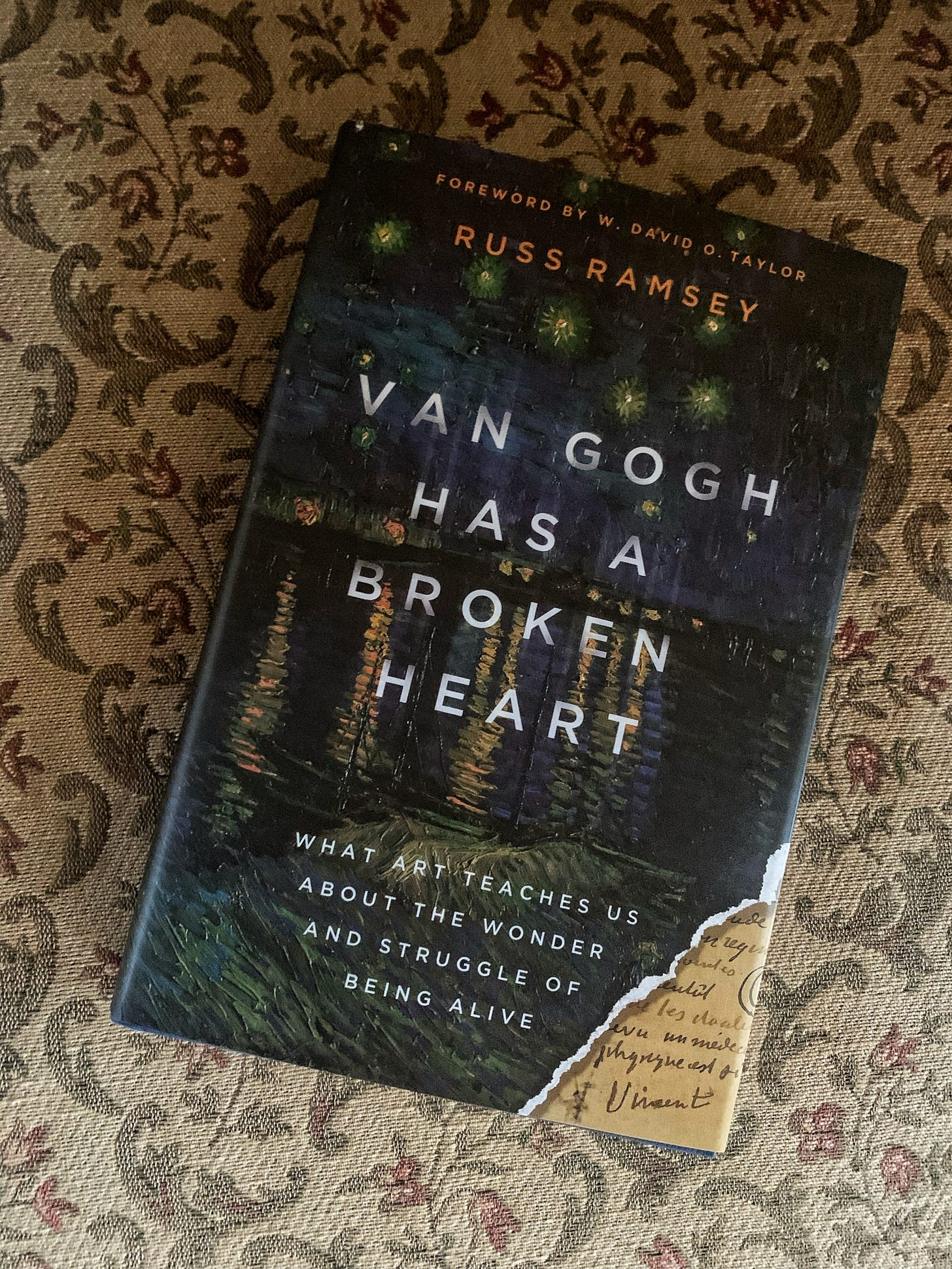[A few of my many copies of Jane Eyre. I’m especially fond of the one on the left!]
It is hard for me to believe how much has unfolded since last week—seven days that feel like a year—when I was writing last week’s post on George Herbert’s “Easter Wings.”
I shared that my 88-year-old mother was ill in the hospital and we couldn’t figure out the problem she’d been struggling with for weeks. Then we learned that the cancer she’d been treated for earlier in the year—successfully, we thought—had returned and metastasized. We brought her home for hospice care.
For those who don’t know, home is here in a house my husband built for my parents some years ago behind ours. So we—my father, husband, and I—are all caring for her. Every day brings twists and turns and unknowns. There is much I am experiencing, seeing, learning, and feeling in this stage of life that I’ve never witnessed up close before. It is hard. But it is filled with love and grace.
There is more to say, but that is for another day. I will share one glimpse into these current days at the end of this post.
While I catch my breath, I thought I would share with you an essay I wrote recently at Plough on my beloved Jane Eyre. Here’s a snippet, and you can read the rest here:
From the start of the story – having nothing and no one – Jane has shown herself to be a person who is strong-willed, deeply introspective, and profoundly spiritual. Indeed, the novel is not only an exemplary form of that emerging literary genre (the novel), but it also draws upon a more ancient genre – the spiritual journey or pilgrimage. When viewed through this lens, the novel’s otherwise ordinary opening line can be seen as hinting at the profound pilgrimage that is to come: “There was no possibility of taking a walk that day.” This seemingly mundane sentence signifies, on the surface, a literal jaunt outdoors. Prevented by inclement weather from that otherwise insignificant activity, however, Jane and her cousins remain indoors where a pivotal event will occur that changes the course of Jane’s life. Thus, the sentence gestures toward the walk-as-pilgrimage motif that recurs throughout Christian (and non-Christian) literature, from Dante’s Divine Comedy to Chaucer’s Canterbury Tales, to Bunyan’s The Pilgrim’s Progress. Following closely in this tradition, Jane Eyre is not only a novel, but also an allegory of the soul, a soul on a journey to secure a fitting place in this world as well as in the next. And it is that desire, that need, to find a place in this world that makes Jane Eyre – and Jane Eyre – quintessentially modern.
***
Our next reading at The Priory will be John Milton’s Areopagitica. I’m pleased, daunted, and excited to add that we will also read Paradise Lost! You have time to find both works before we start Areopagitica next week.
You can access both works online: Areopagitica and Paradise Lost.
Of course, I hope some of you will pick up print copies of these books. Be wary of the print-on-demand versions. Other than those, editions from any series (Penguin, Oxford, etc.) are usually great.
I’m really looking forward to (and needing) some time spent in slow reading these days. I hope you will join me! (Also, let me note that it is my hope and prayer to be able to continue posting weekly even through this family crisis. However, if you don’t hear from me in any of the coming weeks, I know you will understand.)
Speaking of “slow,” this time with my mother as she faces the end of life is exceedingly slow—and lightning fast, too.
I said there is more to say, and most is not to be said now. But I will say that the Lord has been kind and foreseeing in the kindest ways. I was not traveling this past week when we received the diagnosis and prognosis and then brought her home. I did have to cancel one trip this weekend, but will have other family members here for the next two, Lord willing. I’m grateful especially for this newsletter which is not only a great joy but also allows me to work from home—only because some of you are willing and able to support me financially to do so. I cannot begin to tell you how important that has been and is even more so now. So thank you—from the deepest part of my heart and my soul—thank you. You are not only blessing me, but you are blessing my family, and in particular, my mother who has served people with great love all her life.
I wanted to share a sacred moment we had this weekend when my friend Melissa Morris came and sang hymns for and with my mom. Mom always loved for me to tag her on social media when we did things together. She also has appreciated her friends and mine being able to pray for her through this valley over the past year. So I know she would be happy for me to share this with all of you.
Thank you for stepping virtually onto this holy ground with me.
"Absolutely unmixed attention is prayer.”1
***
BOOK NOTE:
I love the work of Russ Ramsey. I just received his newest book, which looks very timely for me: Van Gogh Has a Broken Heart.
As any book about art should be, this one is beautiful. It has many pictures to accompany the text, including a pack of full-color plates in the middle. I cannot wait to sit down with this one, read, and gaze.
Simone Weil, Gravity and Grace, trans. By Emma Crawford and Mario von der Ruhr (London: Routledge, 2002), 117.





"There is much I am experiencing, seeing, learning, and feeling in this stage of life that I’ve never witnessed up close before. It is hard. But it is filled with love and grace." Amen, Karen. Nothing else in life ever compares with a time like this - and nothing can compare with that matchless grace. The Lord continue to bless you all. 🙏
Given the disruptions in my life in the past 18 months, and given that as I am aging, my eyesight is diminishing, I have often thought of this Milton sonnet. The last line fits (and blesses) many hard circumstances:
https://www.poetryfoundation.org/poems/44750/sonnet-19-when-i-consider-how-my-light-is-spent